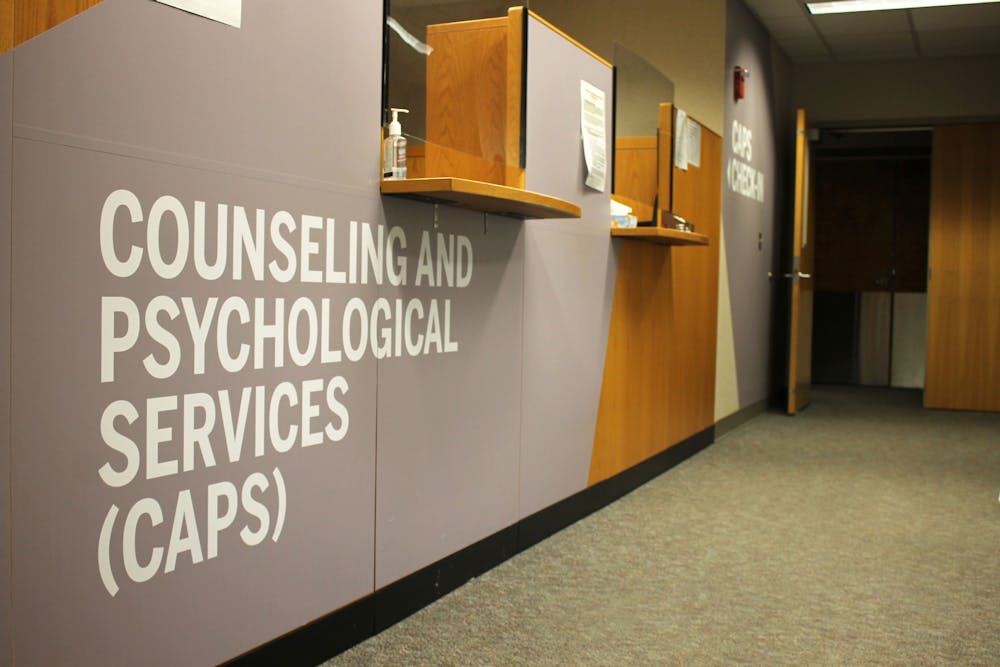Freshman Jacob Radin sits in a lecture hall, his feet tapping as he struggles to focus. Still, he says he feels better than he did in high school, when he’d bite his nails until they bled and duck out of class early due to boredom.
Radin, who was diagnosed with ADHD when he was 3 years old, is one of many students at IU who have had to seek educational accommodations during their time in college in order to cope with their symptoms.
Three weeks ago, IU’s Counseling and Psychological Services said it was unable to accommodate any more ADHD screening requests from students since it is booked for the rest of the fall 2021 semester. Radin said he’s concerned about how this could affect students who have yet to find support.
“It’s better to know that you have ADHD so you can deal with it in the proper way rather than to have it slowly affect you,” Radin said.
CAPS director Dr. Denise Hayes explained how it is managing scheduling given the increase in demand for counseling services, and how it is supporting students with potential ADHD symptoms even though screening is booked. CAPS is currently referring them to local psychological sources.
Hayes said the ADHD screening CAPS typically offers is not a comprehensive assessment used to obtain an official diagnosis but is rather a process of comparing students’ symptoms to other possible causes, like depression, anxiety or sleep deprivation. From there, CAPS will guide students on how to proceed.
“If someone has clear and compelling signs of ADHD, then we will refer them to a psychiatrist to continue some assessments,” Hayes said.
Depending on their symptoms, CAPS will then connect students with Disability Student Services. DSS offers testing accommodations, life coaching and ADHD specific plans to students who need it. It also refers students to the Student Academic Center, where they can seek academic coaching to learn how to manage their time. In terms of seeking ADHD-specific therapy, CAPS currently refers students to psychiatric providers in Bloomington and Indianapolis.
However, students may have an even more difficult time booking an appointment with these external providers.
IU alumna Dr. Sarah Ragonese, a licensed psychologist listed on the CAPS website, has been practicing in Bloomington for more than 15 years. She said she’s received an unusually high demand for ADHD services in the last year and a half.
“The number of inquiries that I get from college-aged students regarding ADHD evaluations has probably increased fivefold,” Ragonese said. “On average, I receive 30 to 40 inquiries a week, and that’s unheard of.”
Ragonese said in previous years she received only three to five ADHD inquiries per week.
This surge in the need for mental health services is felt across Bloomington. Spencer Psychology, another practice that CAPS refers students to, said this week it was completely booked as well.
Both Hayes and Ragonese said they think the impacts of the COVID-19 pandemic on students’ lives may be responsible for this uptick in requests for counseling.
“It’s possible that COVID-19 could have contributed to the symptoms, whether that means they actually have ADHD or they’re having trouble concentrating and focusing,” Hayes said. “I would say more of what we’re seeing now is students adjusting to being back with people, adjusting to the interpersonal interactions, social anxiety, things like that.”
Ragonese said impacts of the pandemic, coupled with the added pressure of a college curriculum and lifestyle, could explain students’ need for support.
“The demands are higher in college and you also have a lot less structure than high school provided, so it can be kind of the perfect storm for some people to struggle,” Ragonese said.
Despite the struggle to book counseling, Hayes stressed that students have options and said she’s glad that so many students are seeking mental health support.
“I think everyone can really benefit from some counseling because it’s an opportunity to have an objective perspective on things that stress us out,” Hayes said.
Ragonese said in the meantime, students experiencing ADHD symptoms should look into executive functioning strategies, which are techniques for managing mental processes. She also said to take care of their sleep schedule, exercise and nutrition. She said managing these seemingly little things can be massively important in daily cognitive function.
As for on-campus solutions, Molly Burke, coordinator of retention services for the Student Academic Center, said it’s working on expanding its academic coaching opportunities. She said academic coaching works to teach students how to manage not only their time and schoolwork but also their health.
“There’s a transition happening for the students,” Burke said. “We still have students that are like, ‘Well, my mom made me an appointment.’ That’s another thing we try to teach here — at some point you’re going to have to be the one calling.” Burke said.
Burke said she hopes students will remain persistent and hopeful while they seek help.
“I encourage them to keep going,” Burke said. “Tons of people experience college as being harder than what they thought it would be, but just because you feel that way doesn’t mean you’re not supposed to be here or that you don’t have what it takes to get it done. It just may look a little different.”




